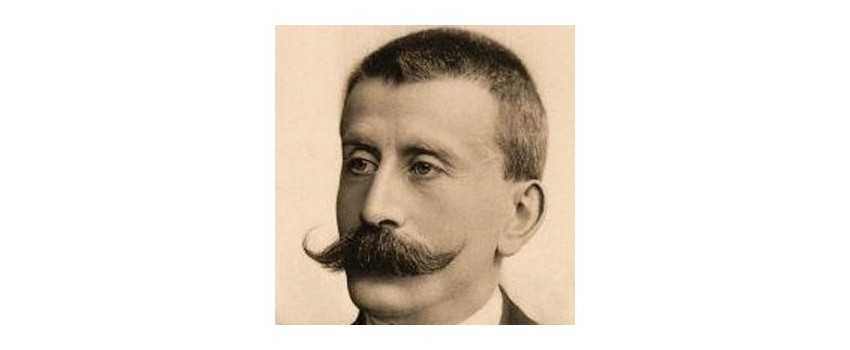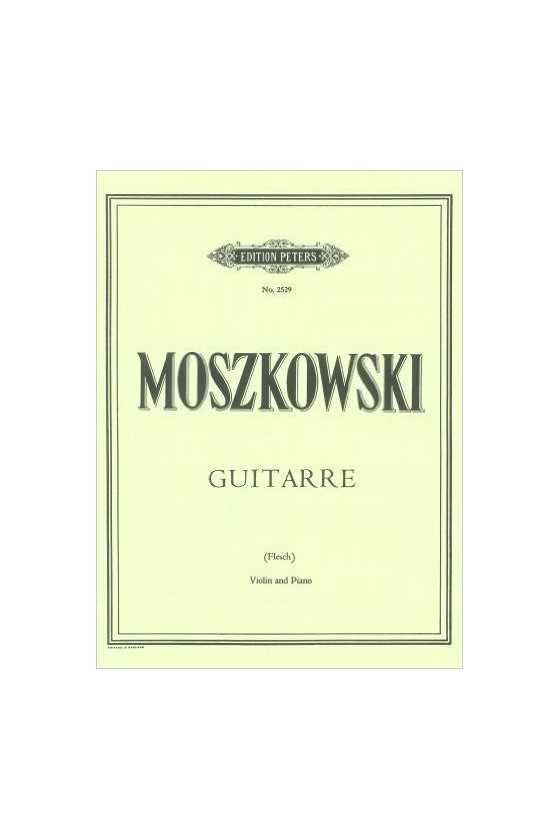Moszkowski, Moritz
Moritz Moszkowski, a Polish-Jewish composer, pianist, and instructor, may have faded from the limelight in recent years, but his contributions to the world of music are undeniable. Born on August 23, 1854, in Germany, Moszkowski displayed exceptional talent from a young age. His compositions for the piano showcased his mastery of the instrument, earning him accolades and admiration from renowned musicians of his time.
Early Years and Musical Education
Moritz Moszkowski's musical journey began in Germany, where he was born into a Polish-Jewish family. His brother, Alexander Moszkowski, would also gain fame as a writer and humorist in Berlin. Moritz's early years were marked by a deep passion for music, and his talent on the piano quickly became evident. Recognizing his potential, his parents enrolled him in the Dresden Conservatory, where he received formal training in composition and piano performance. Under the guidance of renowned musicians, Moszkowski honed his skills and laid the foundation for his future success.
Rise to Prominence
As Moritz Moszkowski's reputation grew, so did his audience. Ignacy Paderewski, a celebrated pianist and composer, once remarked, "After Chopin, Moszkowski best understands how to compose for the piano." This statement attests to Moszkowski's ability to capture the essence of the instrument and create compositions that showcased its full range of capabilities. His music resonated with audiences across Europe, drawing fans who were captivated by his balance, dazzling limpidity, and remarkable technical prowess. Despite his popularity, Moszkowski's works were often described as "devoid of the masculine and the feminine," a quality that set him apart from his contemporaries.
Prolific Compositions
Moszkowski's prolific output as a composer is a testament to his dedication and creative genius. Over the course of his career, he produced over 200 small-scale piano pieces, many of which gained popularity among musicians and enthusiasts alike. One of his most renowned collections is the Spanish Dances Op. 12, a series of piano duets that captured the vibrant spirit of Spanish music. These dances, with their infectious rhythms and colorful melodies, became a sensation and further solidified Moszkowski's position as a master of piano composition.
In addition to his smaller works, Moszkowski also ventured into larger-scale compositions. His Violin Concerto in C major, Op. 30, showcased his ability to create grand, sweeping melodies that showcased the virtuosity of the solo instrument. Moszkowski's orchestral suites, such as Opp. 39, 47, and 79, demonstrated his versatility and command of orchestration, while his symphonic poem Jeanne d'Arc, Op. 19, transported audiences to historical realms with its evocative storytelling.
Notable Works and Performances
While Moritz Moszkowski's piano compositions were the cornerstone of his musical career, several works and performances stand out as particularly noteworthy. His early Serenade, Op. 15, achieved worldwide recognition and was covered by various artists, including the popular song "Liebe, Kleine Nachtigall." This piece showcased Moszkowski's ability to craft melodies that melted hearts and lingered in the minds of listeners.
Another set of compositions that earned Moszkowski acclaim is his fifteen Études de Virtuosité, Op. 72. These virtuosic studies pushed the boundaries of technical prowess on the piano and have been performed by renowned pianists such as Vladimir Horowitz and Marc-André Hamelin. Ilana Vered recorded the first complete recording of these études in 1970, cementing their place in the repertoire of accomplished pianists.
Beyond his piano works, Moszkowski also delved into the world of ballet. In 1896, he composed the three-act ballet "Laurin," showcasing his ability to create music that seamlessly intertwined with dance and storytelling. Though his opera "Boabdil der Letzte Maurenkönig, Op. 49" did not remain in the repertoire, its ballet music remained immensely popular for an extended period.
Legacy and Recognition
Despite his undeniable talent and popularity during his lifetime, Moritz Moszkowski's music gradually fell into obscurity. However, recent efforts by musicians and musicologists have shed light on his remarkable contributions, leading to a rediscovery of his works. Today, his compositions are once again receiving the recognition they deserve, with performances and recordings by talented musicians ensuring that his musical legacy lives on.
Conclusion
Moritz Moszkowski may have faded from the public eye, but his music continues to captivate and inspire. His mastery of the piano and his ability to create compositions that showcased its full potential set him apart as a true virtuoso. From his vibrant Spanish Dances to his grand orchestral works, Moszkowski's music leaves an indelible mark on the world of classical music. As we delve into his rich musical legacy, we have the opportunity to rediscover the forgotten master and appreciate the immense talent that Moritz Moszkowski possessed.


